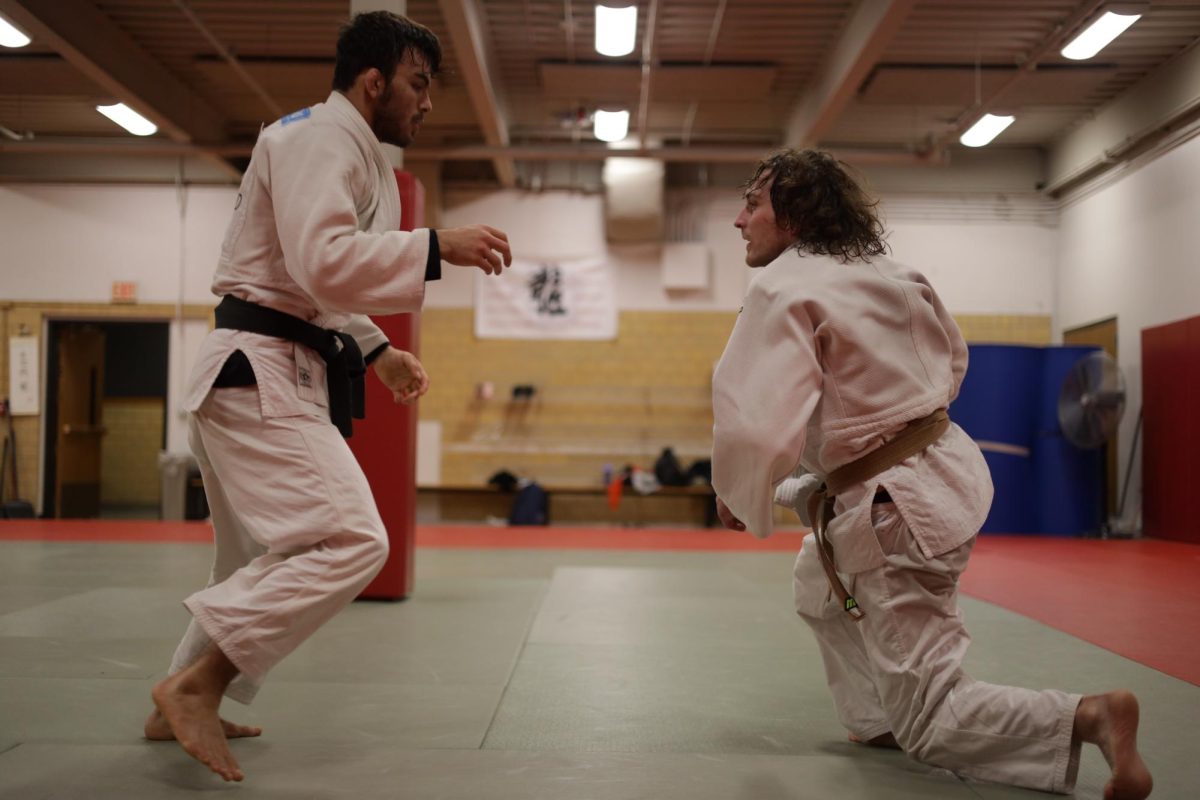Since 2002, Iowa State has partnered with the World Food Prize Foundation to hold the Norman Borlaug lecture. The lecture was first presented by Dr. Norman Borlaug, the founder of the World Food Prize and winner of the 1970 Nobel Peace Prize.
Since then, hundreds of students, faculty, staff and community members have attended with leading experts each year to make significant advances in addressing hunger and suffering worldwide, inspired by Dr. Borlaug.
This year, the World Food Prize laureates were Geoffrey Hawtin, Ph.D., and Cary Fowler, Ph.D. They were honored for their pioneering work preserving crop biodiversity and security, genetic resources and essential elements for long-term food security in an increasingly unpredictable world.
During the lecture, Hawtin spoke about the current situation and how genetic diversity can help us move forward into what he considers a rather frightening era.
“In 2023, [there were] possibly 2.3 billion people who were moderately or severely food insecure,” Hawtin said. “One in 11 face hunger, which is found in Africa. The population is expected to keep about 10.3 billion people in the 2080s before it begins to decline. 10.3 billion is 2 billion more people than we have on Earth today. It’s been estimated [that by] 2050, we’re going to need a 57% increase in food production. What’s widely accepted now, maybe even an optimistic scenario, media global warming scenario, would indicate that maize yields in Africa [need to increase by] 13%, wheat yields by 23% by 2050, just 26 years from now.”
Hawtin said that while these facts are depressing, there are some solutions. Reflecting on his journey with crop breeding in the Middle East in 1974, he emphasized that the breeding program cannot start without diversity.
Hawtin recounted his work breeding pulses, like chickpeas in the Middle East, where he saw firsthand the power of genetic diversity in creating resilient crops. By crossing multiple varieties from different regions, he realized the value of maintaining genetic collections to meet future challenges.
“Genetic diversity, to me, is one of the key elements that, if we handle it right, is going to be able to meet and hopefully feed the world [of our] children and our grandchildren,” Hawtin said.
Fowler underscored that the situation the world is in right now is not a good one.
“We’re going to need to produce 50% to 70% more food by 2050, and in certain areas where we have a lot of food insecurity already,” Fowler said. “We have more than 700 million people that are food insecure. We have 3 billion people who cannot afford a nutritious diet. We have more than 60 million children under five years of age who are physically constricted.”
Fowler said the yield projections for many staple crops are not promising, with some estimates showing potential declines in productivity due to climate change. Challenges include fluctuating climate conditions, declining crop productivity and resource limitations like the depletion of major aquifers, which further strain food production.
“However, it’s not the end of the story,” Fowler said. “Eighty percent of conflict exacerbates food insecurity, and we have to break that cycle.”
Fowler said international programs, including some in the U.S. State Department, focus on crop adaptation and soil conservation as essential to achieving long-term food security. This effort involves promoting nutritional security by identifying crops with high potential to combat malnutrition, especially in regions like Africa.
Jocelyn Jacobsen, a freshman in kinesiology and health, said she was interested when Fowler talked about the sea ball in Norway.
“It was interesting to learn about how much there is a need for more crops and stuff, how many people are hungry and in need of crops, and how important it is of the value of soil and how our crops need to be with nutrients,” Jacobsen said. “The thing that stood out to me was that through the preservation of seeds, it’s like we’re losing diversity. That was an important thing to consider.”
Jacobsen said the lecture gave her knowledge about what’s going on in the world, some things to think about that are outside of herself and what people go through around the world.
For more information on the Iowa State Lecture Series, visit their website.








